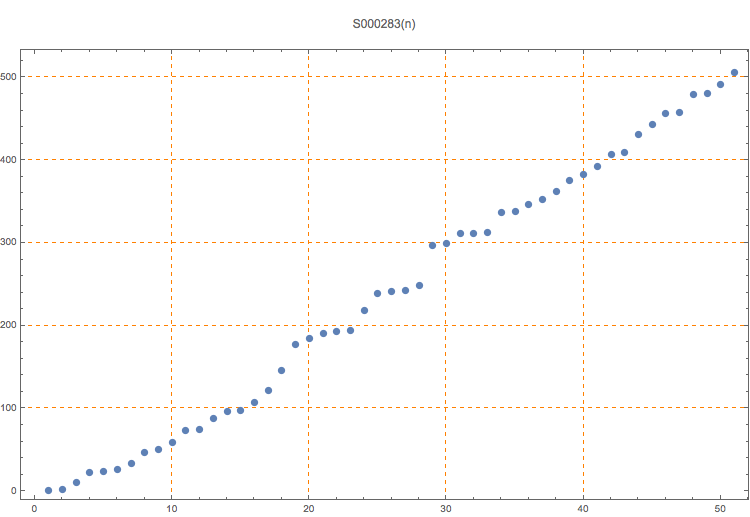Numbers n (excluding squares > 1) such that sum of squares of n consecutive integers >= 1 is a square.
1, 2, 11, 23, 24, 26, 33, 47, 50, 59, 73, 74, 88, 96, 97, 107, 122, 146, 177, 184, 191, 193, 194, 218, 239, 241, 242, 249, 297, 299, 311, 312, 313, 337, 338, 347, 352, 362, 376, 383, 393, 407, 409, 431, 443, 457, 458, 479, 481, 491, 506
1
The squares greater than 25 produce only a finite number of such a sum of squares (see S000605); all other numbers occur an infinite number of times. So this is sequence A001032 without the squares greater than 1. For example, see sequence A001652 for the numbers that begin a 2-term sum; see A106521 for the 11-term sums.
T. D. Noe, Plot of 51 terms
Moshe Laub, Squares Expressible as a Sum of n Consecutive Squares, Advanced Problem 6552, Amer. Math. Monthly 97 (1990), 622-625.
Cf. A001032, A001652, A106521, A094196, S000277-S000282, S000284, S000605.
nonn
T. D. Noe, Oct 08 2014
